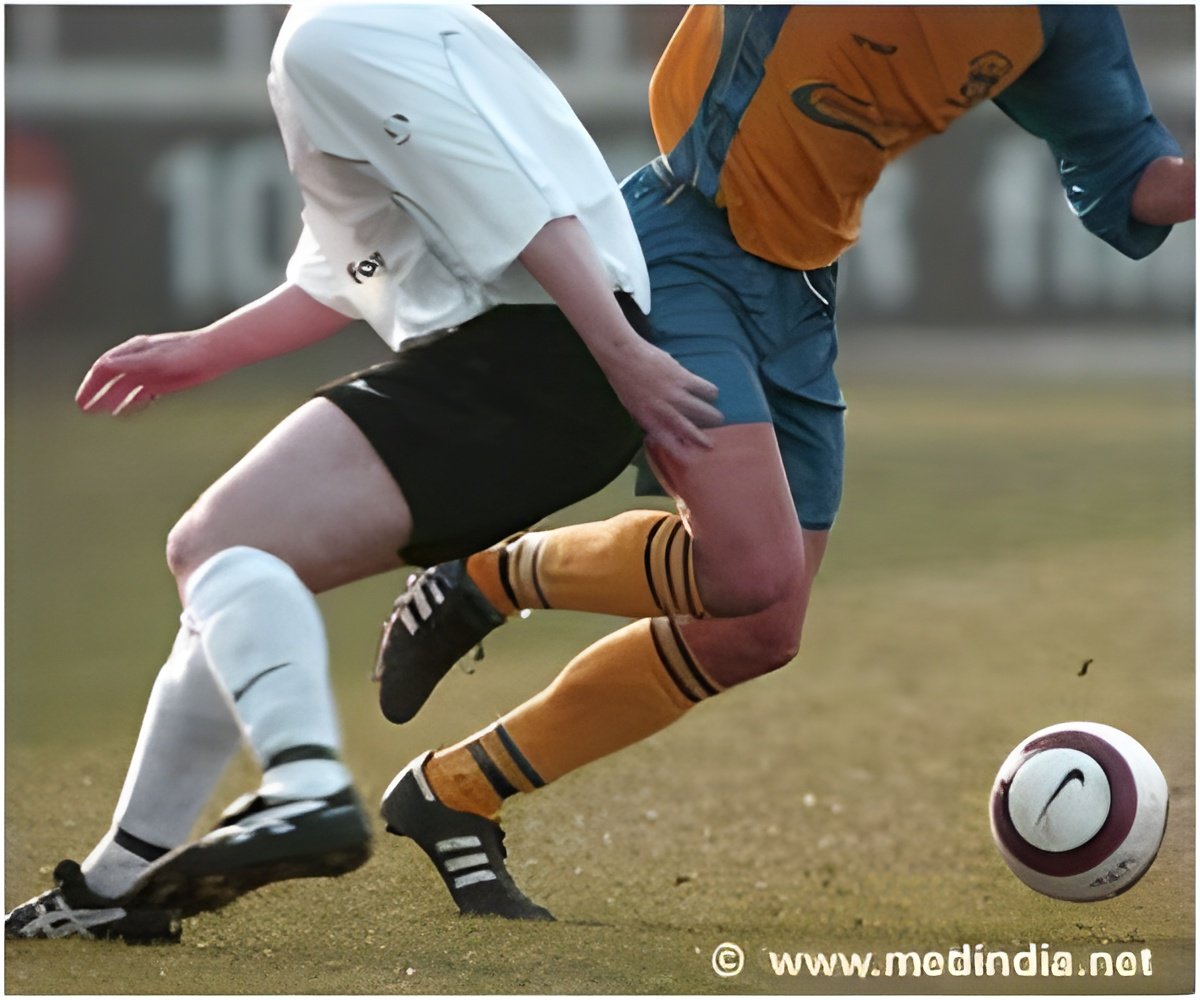With the FIFA World Cup set to kick off in less than a week’s time, another global tournament is currently underway near the snow-peaked foothills of northern Sweden.

"Football helps us ... we get to tell people about the situation in our camps. Otherwise nobody hears about us," Ismail Gamaradin tells AFP after his team lost 19-0 to stronger, better trained players from the breakaway Georgian republic of South Ossetia in the first round of CONIFA World Cup matches.
The day before they lost 20-0 to Padania, a team representing the autonomous aspirations of Northern Italy.
Gamaradin was just 11 when Janjaweed militia gunned down his father in front of him, forcing him to flee with his mother and seven younger siblings to refugee camps three-days-walk away.
"It's very difficult there now -- there's not enough food, medicine or education and the UN says we have to go back to Darfur next year," added the soft-spoken 23-year old.
"But there is still killing and raping everywhere. We don't think there'll be peace any time soon."
Advertisement
His team consists of survivors of a conflict that began in 2003 and has killed hundreds of thousands according to some estimates. They came to Sweden with the help of an aid group working in camps on the Chad-Sudan border that house more than 300,000 people.
Advertisement
"Conditions are getting worse and worse, there is less and less aid ... We need to get Darfur on the map again," said i-ACT founder Gabriel Staurer, who lobbied hard to get the team to Sweden, amid warnings that Chad would stop the NGO-run football training in the camps if the refugees overstayed their visas.
Football is one of the few things these men have left, said Staurer, adding that militias visit their camps to lure the most desperate back to Darfur to fight in the escalating conflict.
"If these guys don't pick up a football, they're gonna pick up a gun," he said.
Darfur United was up against other teams with large refugee diaspora including Kurds, Aramean-Syriacs, and Tamils.
They all expressed the same goal: using football to put their people on the map.
"I feel really honoured to wear the jersey of Tamil Eelam," said Umaesh Sundaralingam, a 21-year-old student from Toronto, Canada.
Tamil Tiger rebels fought to control this part of northern Sri Lanka in a war with government forces that killed at least 100,000 -- ending in the alleged massacre of 40,000 Tamil civilians before the government claimed victory in 2009.
An international Tamil youth organisation selected players from Canada, France, Germany and the UK -- some of them professional players -- many of whom met for the first time just ahead of the tournament.
"The one thing that connected everyone was that we all have roots in Tamil Eelam -- a lot of people don't know what went on in Sri Lanka and we want to publicise it," said Sundaralingam, at the stadium which was dotted with bright red Tamil flags bearing the separatist group's tiger emblem.
"And this is one way to show we're a nation and that we're stronger than ever."
- Empty stands -
Yet despite the global ambitions of the teams to reach a wide audience, the stands in Oestersund's 6,000-seat area, perched on a forested hillside above a glittering lake, were conspicuously empty for most of the games.
Per-Anders Blind, head of the Confederation of Independent Football (CONIFA), said it would take time for the word to spread as the organisation was less than a year old.
He put his faith in pay-to-view online broadcasts of the games which he said had already attracted more than a million viewers at previous friendly matches.
But Blind, who has indigenous Sami roots, also blamed the Swedish media for portraying the event as a world cup for ethnic minorities.
"I get so crazy when I hear that!" he said. "Take the Kurdish people -- even if they are a minority of 130,000 in Sweden, they are 40 million in the world."
Kurdistan, the ruling champions from the last non-FIFA tournament -- the 2012 VIVA World Cup in Iraqi Kurdistan -- were tipped to win the final on June 8, until they were knocked out in the quarter finals.
That left Aramean-Syriacs, a diaspora team with Middle Eastern roots among the favourites -- with stiff competition from the County of Nice in France and the Isle of Man. Blind hoped Sweden's sizeable Aramean-Syriac community would boost paltry ticket sales when they play at the weekend.
And while the competition was expected to be fierce, just wearing their national colours in an international tournament was enough for most.
"We have our own identity," said Lee Dixon, the Isle of Man coach from the self-governing island between Ireland and Britain (and no relation to the Arsenal defender).
"But a lot of these teams are fighting for their own identity -- breaking away from a country or trying to get their country back."
Source-AFP









